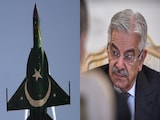In a striking announcement on May 5, President Donald Trump declared 100% tariffs on films produced outside the United States. Citing concerns that the American movie industry is facing a "very fast death," Trump asserted: "Other countries are offering all sorts of incentives to draw our filmmakers and studios away from the United States. Hollywood, and many other areas within the US, are being devastated. This is a concerted effort by other nations, and therefore, a national security threat. It is, in addition to everything else, messaging and propaganda! (sic)."
The move aligns with Trump's recurring theme of making America great again - this time, by revitalising domestic film production. For years, Hollywood films have been increasingly produced abroad due to cost advantages. Reports over the past decade indicate that Los Angeles has seen a 40% decline in film and television production. Industry experts fear that such protectionist measures will only accelerate this decline. Producing films in the U.S. is prohibitively expensive, and many believe that these tariffs could "bring the movie business to a standstill, which is the last thing Hollywood needs after dual strikes and a content recession." Given the global nature of the industry, implementation details remain unclear, but the general consensus is that the move could further damage an already beleaguered sector.
A Global Impact
These tariffs won't just affect Hollywood - they will have significant consequences for international filmmaking as well. The Indian film industry, for example, is already facing similar challenges. The added cost due to tariffs could nearly double production expenses. India has also seen a dip in cinema attendance, and the U.S. remains a vital market for Indian films, particularly due to its large diaspora. Bollywood is expected to be hit hard. As producer Mukesh Bhatt put it: "America is the most expensive country on the planet. Even a Hollywood producer can't afford to shoot in America. You're not helping; you're destroying Hollywood."
The British film industry, too, has raised alarms. Actor Tamer Hassan noted, "It's going to cause unrest and fear, especially among investors - that's our biggest hurdle." With the UK long serving as a popular and cost-effective shooting location, the ripple effects are expected to be substantial. The British film industry, valued at approximately 1.36 billion pounds, supports nearly 200,000 jobs, and many within the sector are bracing for disruption.
The China Factor
It is difficult to ignore the possibility that this move may be a reaction to Beijing's recent decision to reconsider the number of Hollywood films allowed to be released in China, the world's second-largest movie market. After the setbacks caused by the COVID-19 pandemic and the rise of streaming platforms, Chinese cinema-goers were instrumental in reviving Hollywood's fortunes. On April 10, Beijing announced that it was reviewing its import quota, which has traditionally been capped at 34 films since 2012.
If fewer Hollywood films are allowed into China, the impact on upcoming summer releases could be significant. Some analysts suggest the U.S. tariff announcement is a tit-for-tat response. Meanwhile, Beijing has framed the move as a nationalist act, warning that such tariffs could affect the viewing preferences of Chinese audiences. There are even voices within China calling for a complete ban on U.S. film releases. Unsurprisingly, this uncertainty has already led to falling share prices for companies like Paramount Global, Warner Bros., and Walt Disney.
Propaganda and Nationalism
Trump's framing of the issue as one of propaganda and national security finds resonance in ongoing debates about China's influence on Hollywood. The Chinese Communist Party (CCP) exercises considerable control over the media, employing strict vetting processes to ensure only ideologically acceptable films make it into Chinese theatres. Hollywood studios, eager to access China's massive market, have often been criticised for self-censorship on sensitive topics like Taiwan, Tibet, and Xinjiang.
The fallout is well known. Actor Richard Gere's career reportedly suffered due to his vocal support for the Dalai Lama. Films like Seven Years in Tibet led to China banning stars such as Brad Pitt and David Thewlis, as well as director Jean-Jacques Annaud, while costing studios billions.
China has consistently used its market leverage to influence Hollywood's creative choices. The current situation is no different, and the potential consequences could be profound.
A Soft Power Battlefield
Cinema has long been a tool of soft power for both the United States and China. However, despite its cultural value, filmmaking remains a business - and an expensive one at that. If profitability is compromised, the industry will inevitably retreat.
The recent tariff announcement appears to be a bid to promote a nationalistic agenda. But given the soaring costs of production and dwindling audiences, it risks being a futile gesture. With the film industry already facing multiple headwinds, it may not be able to weather the storm these tariffs could bring.
(The author is a Professor at OP Jindal Global University)
Disclaimer: These are the personal opinions of the author















